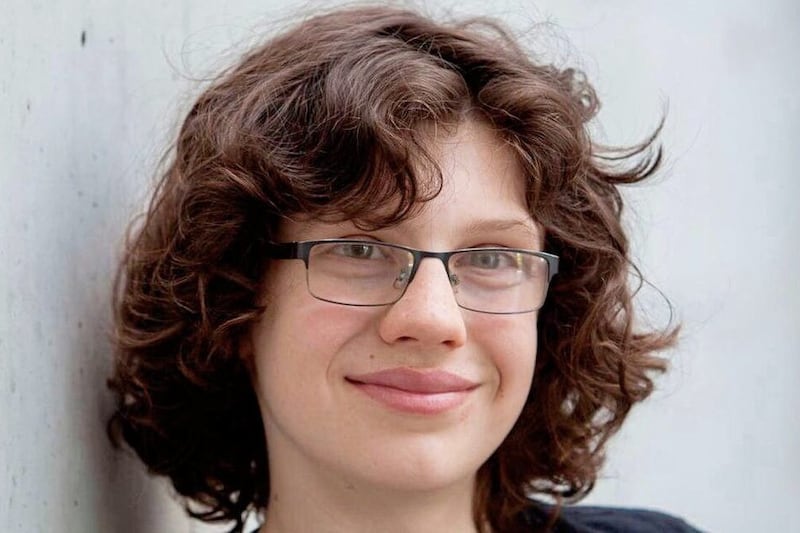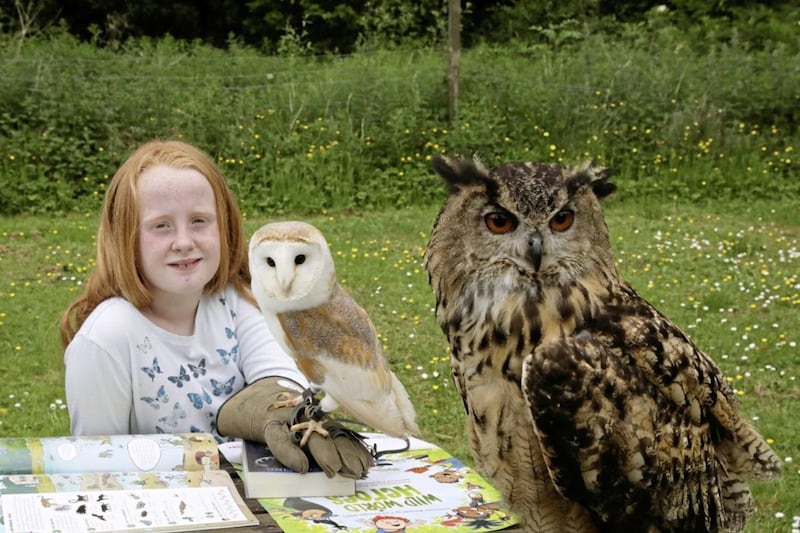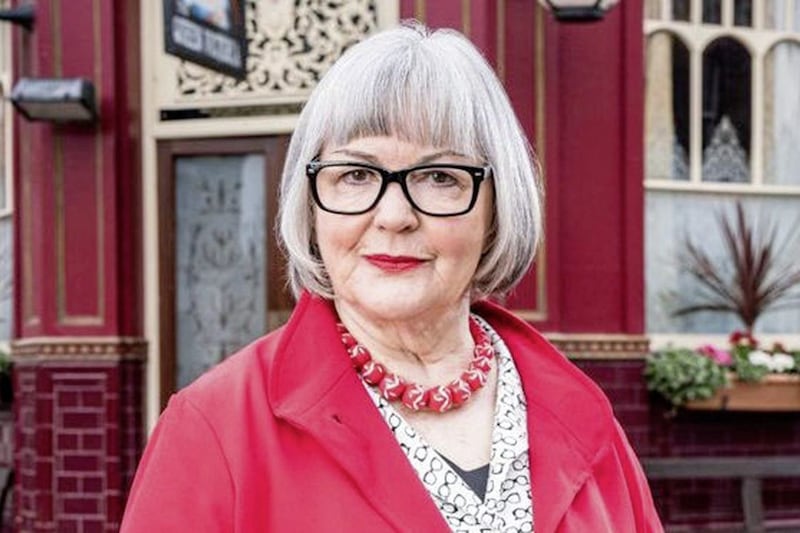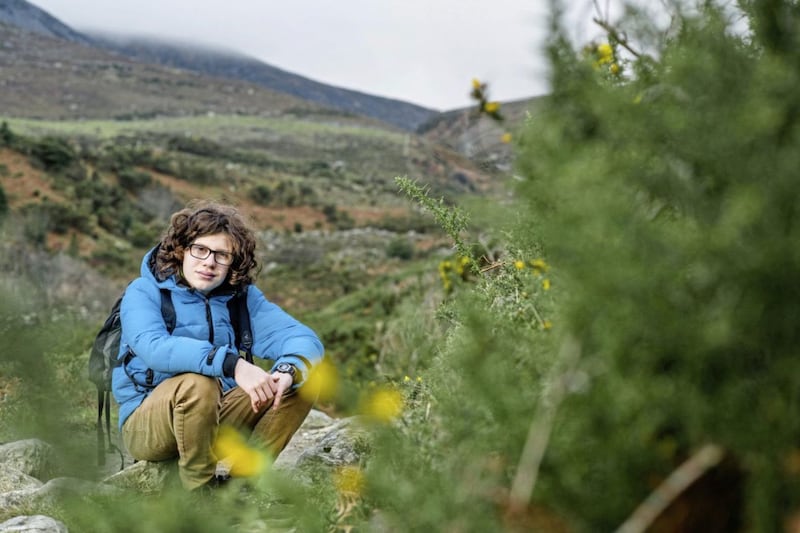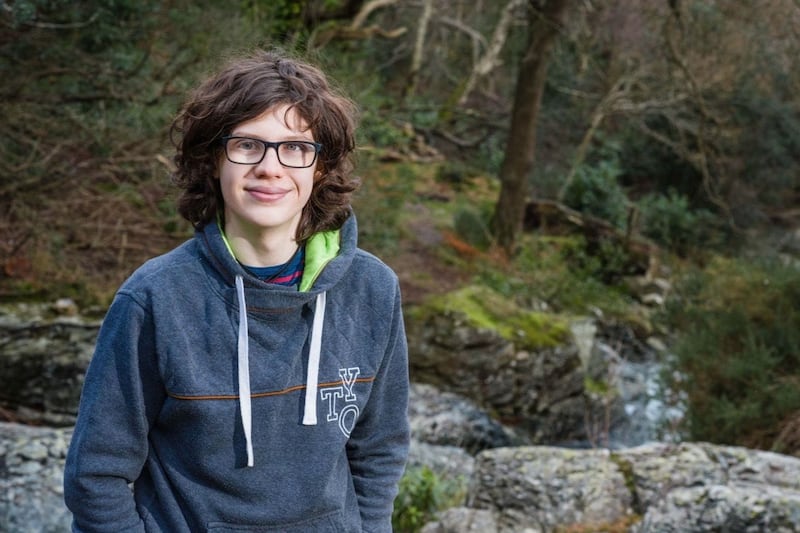AFTER a false start on our Skype chat when connection is lost, 16-year-old naturalist Dara McAnulty's face returns to the screen, peering through large black-rimmed glasses and smiling brightly when he sees me, his shock of wild dark hair framing his friendly young face.
The Irish teenager has been hailed a bright new voice, praised by conservationist Chris Packham, who has become his friend since McAnulty appeared on Springwatch two years ago, helping Packham with a 'bioblitz' to audit the country's wildlife.
They not only share a love of the natural world, but they are also both autistic.
"I've seen him since. We are actually friends," McAnulty says, rather incredulously. "That's something I never thought would happen. We are both autistic, so up until recently our chats were really, really awkward, punctuated with at least 10-second silences. We're very conversational now."
So passionate is McAnulty about conservation and the environment that his name has been bandied about with the likes of Greta Thunberg.
"I don't really see the purpose of comparing people to others because that takes away from a person's identity and uniqueness," he muses. "Greta Thunberg is her own person. She has her methods for getting action and doing stuff in the world, but my way of expressing thought and anger is in writing."
There's been a buzz around the teenager's debut book, Diary Of A Young Naturalist, charting his encounters with wildlife and nature which act as an antidote to his struggles with everyday life, the clatter of the classroom, the sensory overload of the shopping centre, his problems with social integration.
His writing shows a maturity way beyond his years – this is no 'children's book'. It evolved from a blog he began when he was 12 and charts with great sensitivity how he finds peace in his connection with nature, diarised from spring equinox to spring equinox, from his 14th to 15th birthday.
His descriptions of the natural world are mesmerising, from 'trees like spindly witches' fingers' and caterpillars moving 'like slow-motion accordions' to watching 'origami take flight' as he observes bats at night.
He reveals how difficult school life has been over the years, the bullying and the frequent change of schools which followed.
"I was bullied incessantly," he says now. "If I was looking at an insect they [the bullies] would stamp on it. The brutality of it all gets you down after a while. You can't really belong in a place like that."
Shopping centres provide another trigger for sensory overload.
"I hate going to shopping centres because it feels like someone's put a nuclear bombardment on my senses. I run. I get nauseous, sweaty, it's very physical feelings.
"I remember once on a Berlin history trip I walked into a Lindt chocolate shop full of [packaging in] every colour of the rainbow and within seconds nearly fainted. My friend dragged me out of the shop."
When everyday life becomes too much, he escapes to the great outdoors. In his earlier years, he'd find solace in a beloved forest called Big Dog near his previous home in Co Fermanagh. More recently he's loving the Mourne Mountains and the forest park close to his new home in Castlewellan, Co Down, as well as the coast.
His family, he says, are 'as close as otters' and indeed his mother Roisin is pottering quietly in the background during our interview, gently prompting him if he can't think of an answer.
In fact, his mother, and younger siblings, brother Lorcan and sister Blathnaid, are all autistic. Only his father, Paul, a conservation scientist, isn't.
When they moved house two years ago he found the experience excruciating.
"It was incredibly difficult, absolutely horrible. I had about a month-long breakdown. Nothing was going right. It was a new place. I was going into a new school. I was ripped away from Big Dog, a big foundation of my life."
"I retracted into myself," he continues. "What helped me was discovering the world around me, going out into the Mourne Mountains and discovering the forest park and that I could create a new landscape for myself.
"Home isn't made of mortar and bricks, but it's where we are. I was constantly trying to find that grounding to unearth myself. Eventually I found it.
"I now know the beginning signs of going into one of those states so that shouldn't, fingers crossed, happen to me again."
Talking about his new school, Shimna Integrated College in Newcastle, he enthuses: "Everything's been completely turned on its head. It's a lot more welcoming and diverse. I've made friends."
"It feels very bizarre," he adds. "Of course it feels wonderful to have friends but also it's bizarre because it's a completely unique and new experience."
Yet he still felt the clatter of the classroom before lockdown happened.
"It manifests itself in a kind of vertigo, where I go dizzy, have no real control and just have to leave the classroom for 10 minutes," he explains.
His new school, though, has "come to the sensible logic that I'll get more work done if I take these 10 minutes out rather than just struggling through the rest of the lesson".
His friends these days are like-minded spirits.
"My friends are environmentalists. I don't think I could be friends with them if they weren't. Some of them are geeky. It's been the first year group I've been in that is predominantly nerds, geeks and punks."
The forest park and the mountains provide the calm he needs to alleviate the storm of everyday life – and he wants to continue to bang the drum for the natural world.
He's campaigned to end the persecution of birds of prey, fundraises for wildlife organisations and has been a voice in the #IWill campaign for youth social action.
"What angers me most is apathy, when people see something that's happening and just walk on. This apathy is just devastating. One of the root causes of most of the bad things in the world is a person going, 'You know what? I just don't care'."
He's found lockdown difficult, he admits.
"Usually I'm able to explore new places, go into the mountains and the coast. I've only lived here two years and still don't know the place very well. But the positive of it is that I've discovered every single inch of my forest park over the road."
Social media has also enabled him to connect with kindred spirits, he agrees.
"When I started my blog I knew of nobody else who really liked nature that much. But then through my blog I discovered an entire community of people, and on Twitter I met even more of them. It was incredible. It opened up my entire social landscape.
"It gave me a voice and a sense of belonging and community I had never experienced in my entire life, this notion that there were other people out there who care and that there's still hope left in the world. Only when the last person stops caring are we truly lost."
Looking ahead, he hopes to study politics, biology, chemistry and maths A-levels and will continue to be a conservation activist.
So, how is he coping with the media attention he's attracted?
"I just keep on chugging along as if nothing really happens, because I shouldn't really be complemented until I get work done, when I can see what I've done.
"Whenever me and my brother climb a mountain, we always tell ourselves that we're not going to look behind us until we've got to the top – only then we can see how high we've climbed."
:: Diary Of A Young Naturalist by Dara McAnulty is published by Little Toller, priced £16.


